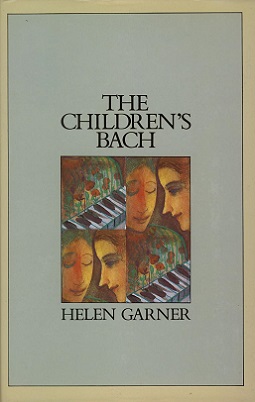Like Raymond Carver, Frank Moorhouse, David Williamson, it feels like Helen Garner’s writing captures a zeitgeist through everyday ordinariness of small moments or ‘eventlets’ that are often caught in glimpses. This might be an overheard conversation, a passing comment or a chance observation. Take for example the comment about concerts:
‘Dexter!’ she said. ‘Nobody dances with anybody any more!’
Interestingly, I think that Garner’s writing style is best summarised by Philip, one of the characters in the book, who provides some feedback to a fellow artist, just replace ‘song’ with book:
Listen. I like your song. Look, I’ll give you a tip. Go home and write it again. Take out the clichés. Everybody knows ‘‘It always happens this way’’ or ‘‘I went in with my eyes wide open’’. Cut that stuff out. Just leave in the images. Know what I mean? You have to steer a line between what you understand and what you don’t. Between cliché and the other thing. Make gaps. Don’t chew on it. Don’t explain everything. Leave holes. The music will do the rest.’
Ben Lerner describes this as a mixture of ‘intimacy and distance’.
What a summary of the plot can’t capture is how the point of view moves rapidly but somehow seamlessly among various characters, focussing on and through them, before it alights on someone else. But this ability to depict multiple perspectives is cut with a sense of how little access we really have to other minds and motivations; Garner’s prose is a singular mixture of intimacy and distance.
Source: Unheard Melodies: On Helen Garner’s “The Children’s Bach” by Ben Lerner
The world is presented in a non-judgemental way, with Garner both celebrating and critiquing the world of responsibility and commitment.
Peter Hayes has highlighted how this can sometimes be confusing or inconsistent.
There’s a hollowness to The Children’s Bach that is ultimately what makes it so tiresome to read: it isn’t really about anything, nor does it tell the entertaining story that would redeem it to that extent.
Source: The Children’s Bach Reconsidered by Peter Hayes
I wonder though if this is maybe how life is? Is the reality produced through the reading, rather than the book itself?
I vaguely remember my grandmother talking about Garner’s non-fiction writing, but really cannot imagine her reading this. Maybe I just did not really know my grandmother that well.

